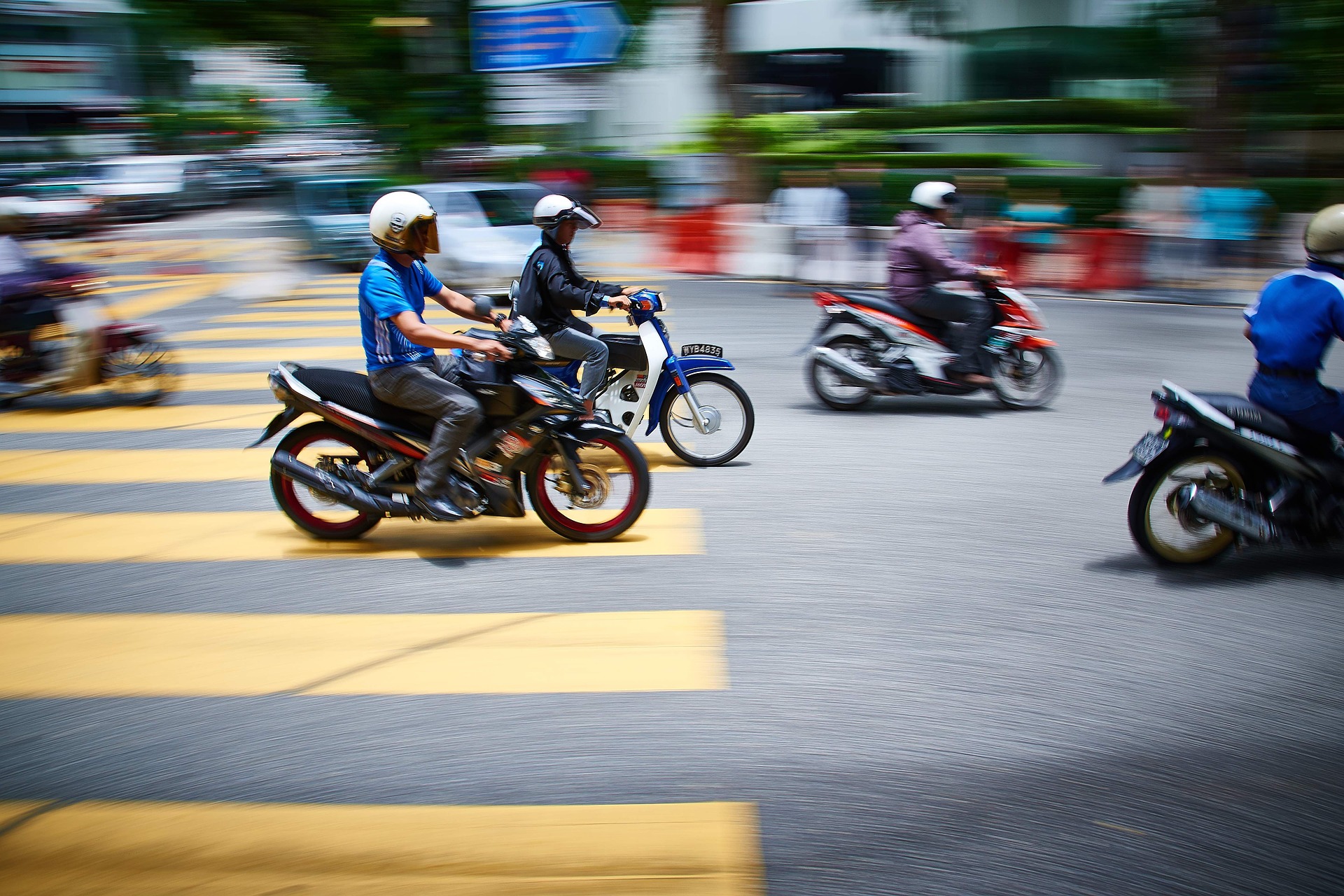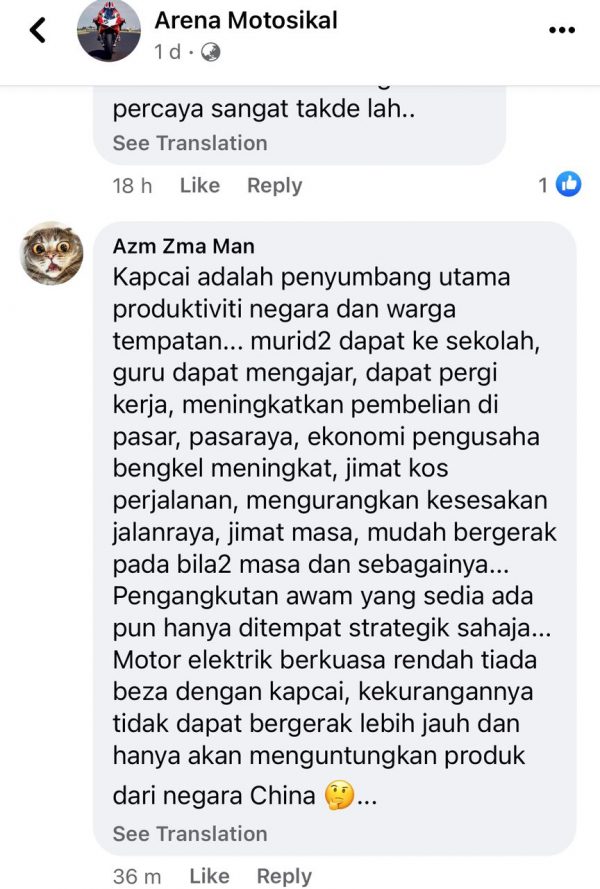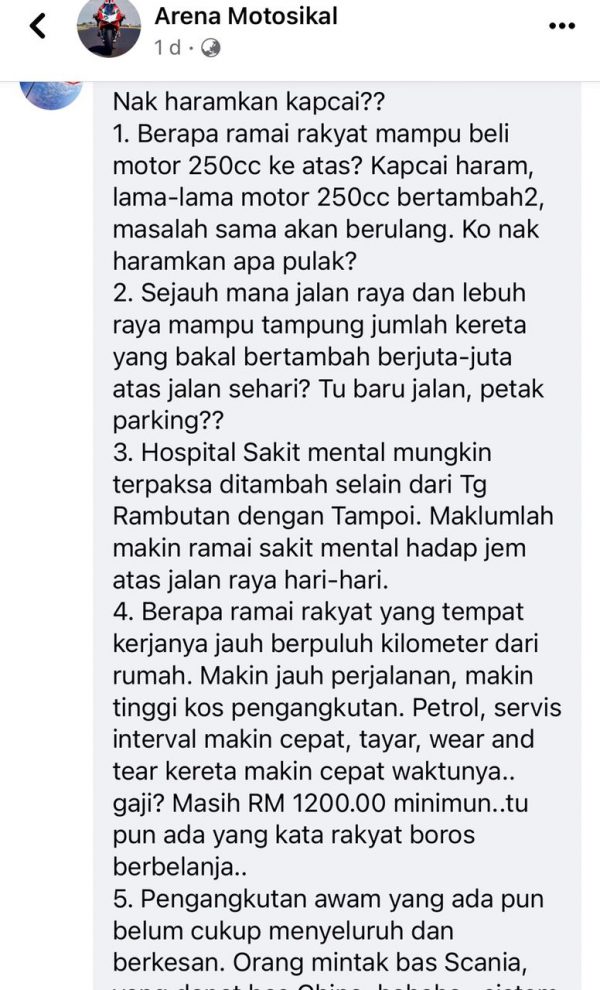This has been a long-standing debate
Running red lights at a junction, racing along the highway while lying flat on their seats and cutting across the lanes – these are just some the dangerous acts often done by ‘kapcai’ riders that lead to alarming figures of road accidents in the country. But is phasing out these light motorcycles the best solution to reduce the number of accidents?

Transport planner Wan Agyl Wan Hassan apparently thinks so. In a recent interview with Astro Awani, Wan Agyl called for the ban of ‘kapcai’ motorcycles, which he described as a killing machine due to the high fatality rate of riders. The term ‘kapcai’ refers to underbone motorcycles below 250 cc.
Wan Agyl said ‘kapcais’ have caused an average of 4,100 deaths a year over 12 years, adding that figures from the federal traffic police reveal that almost 80,000 motorcycle riders were killed from 2001 to August this year. On top of that, these accidents have also caused massive economic loss to the country.
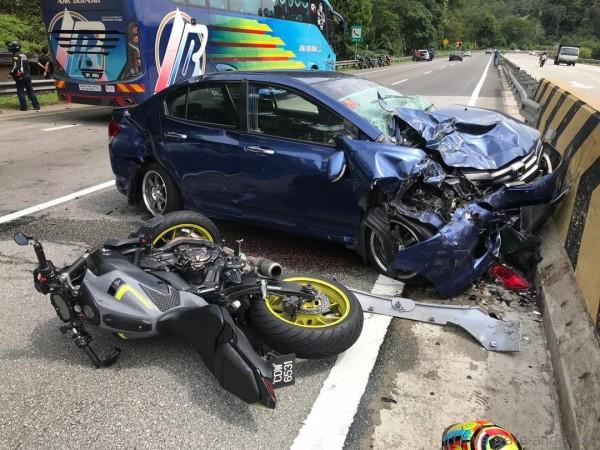
In addition to the ban, Wan Agyl proposed that the ‘kapcai’ motorcycles be replaced with low-powered electric motorcycles to bring down the number of fatalities. This may sound like a smart suggestion at first but we don’t think replacing ‘kapcais’ with electric motorcycles is the best solution. Here’s why.
First off, proper electric motorcycles or scooters are more expensive compared to their petrol-powered counterparts. For instance, the Niu N1 electric scooter is priced at RM8,800, almost double the price of a Honda EX5, while the Singaporean-made Scorpio X1 could cost you around RM40,000. Sure, you could find some cheap, China-made models but keep in mind that there have been several incidents where these bikes suddenly burst into flames.
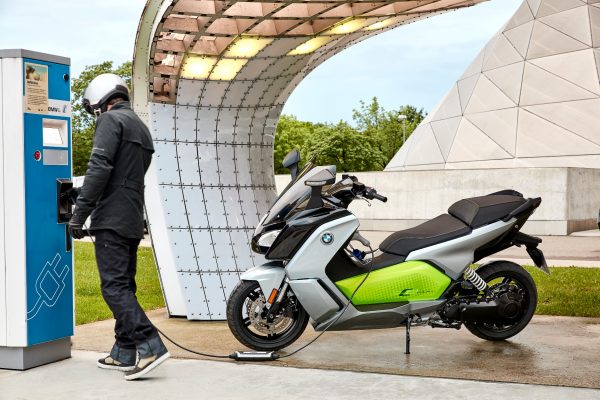
Secondly, while you save on fuel, there are other costs that need to be considered, particularly the cost of electricity for charging and replacing the batteries when the need arises. Then, you have to think about charging infrastructure, or the lack of it. There have been talks about bringing battery-swapping platforms into the country but knowing how things are done here, this could take a few years.
Understandably, the call to ban ‘kapcais’ was not taken well by the owners, majority of whom are from the lower and middle-income group. These are the people who rely on motorcycles to go to work, hence banning them is basically taking away their livelihoods. That is the last thing we need, especially in these trying times. What do you think?

